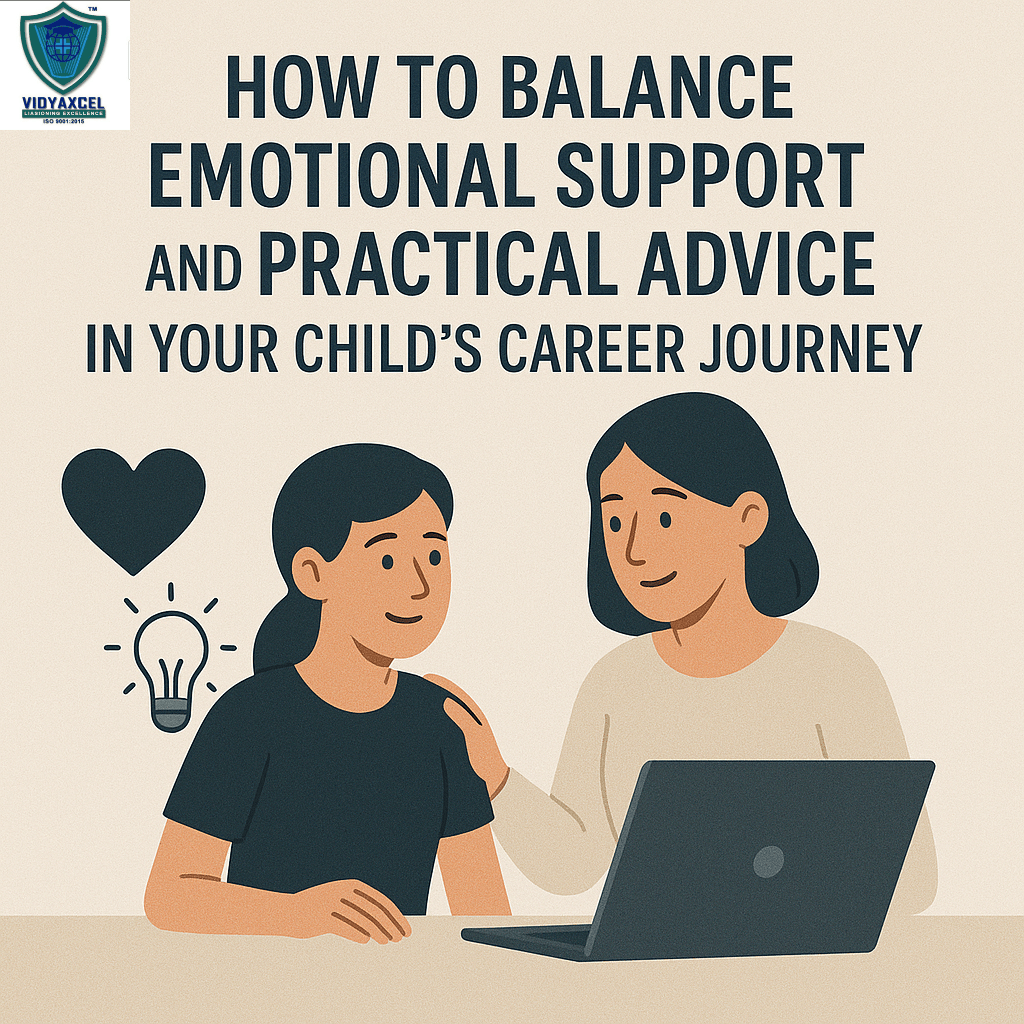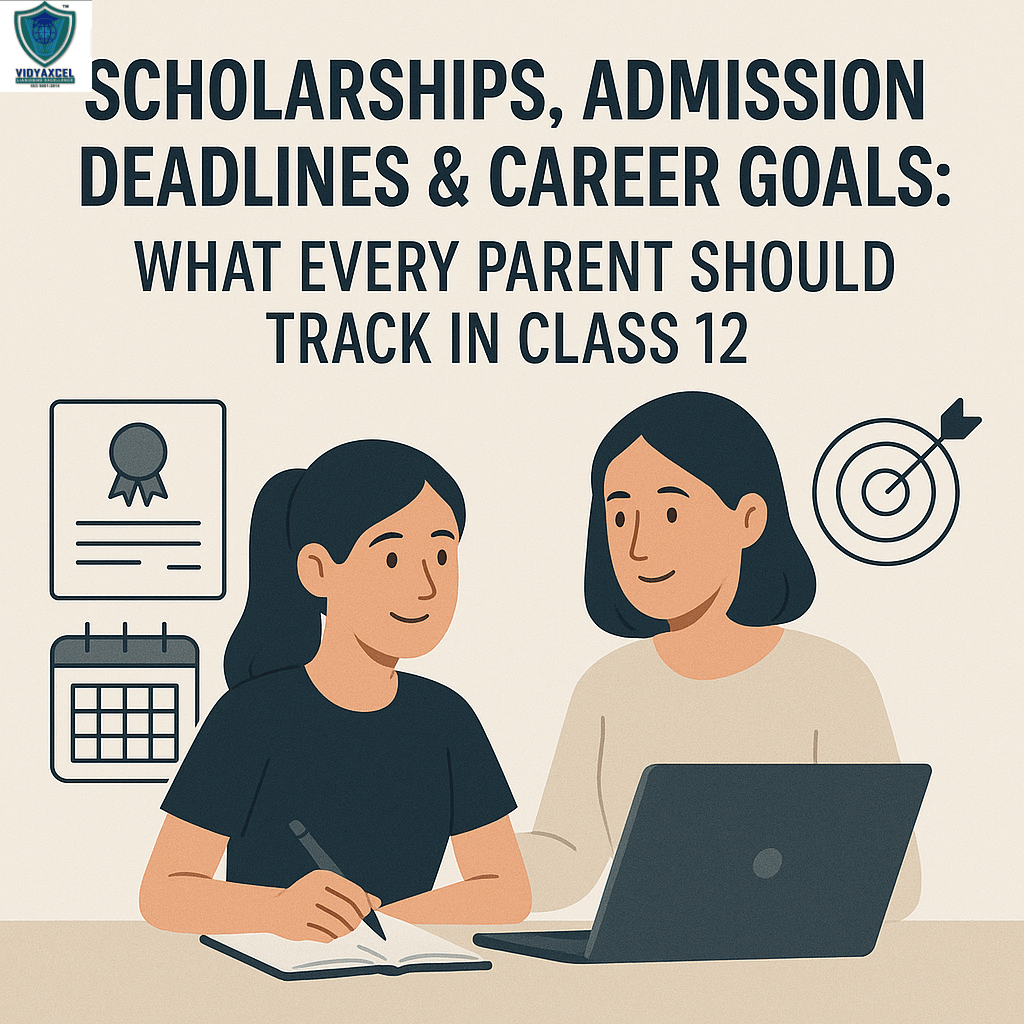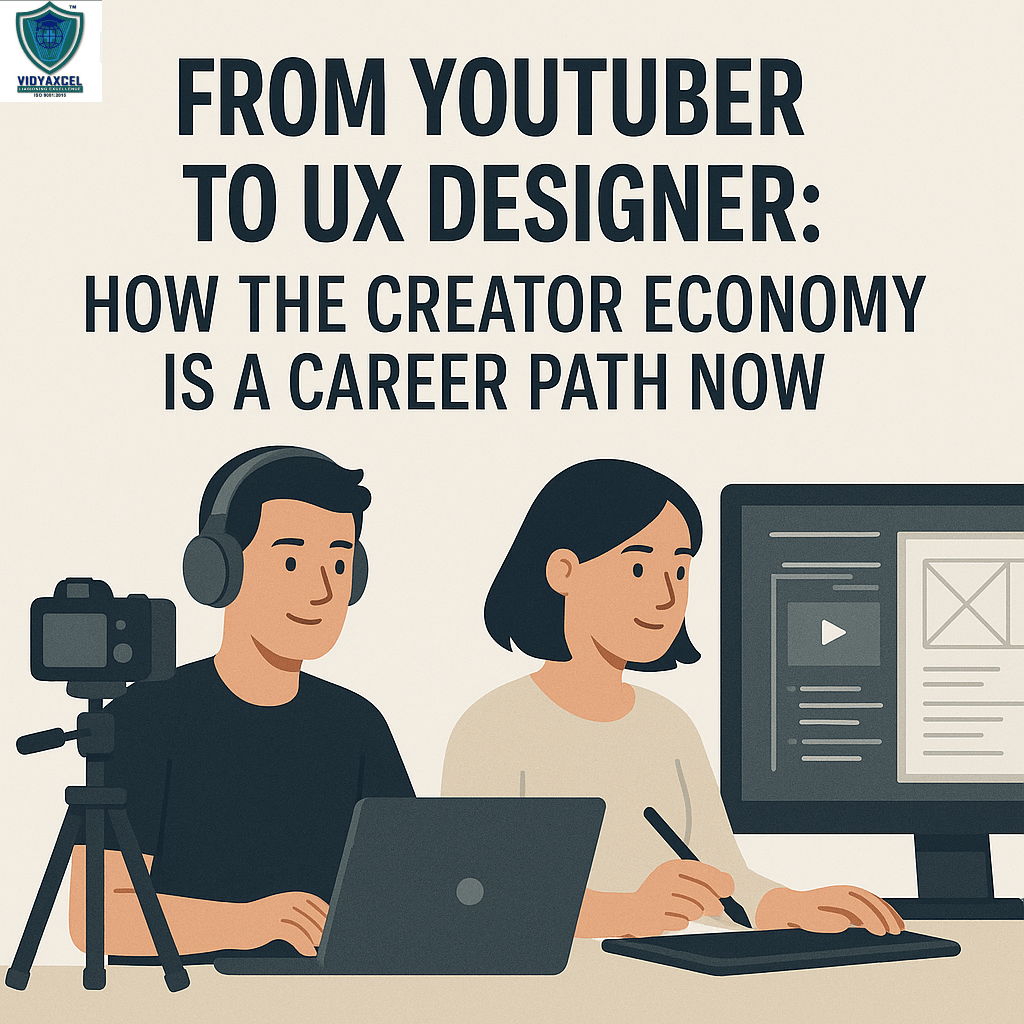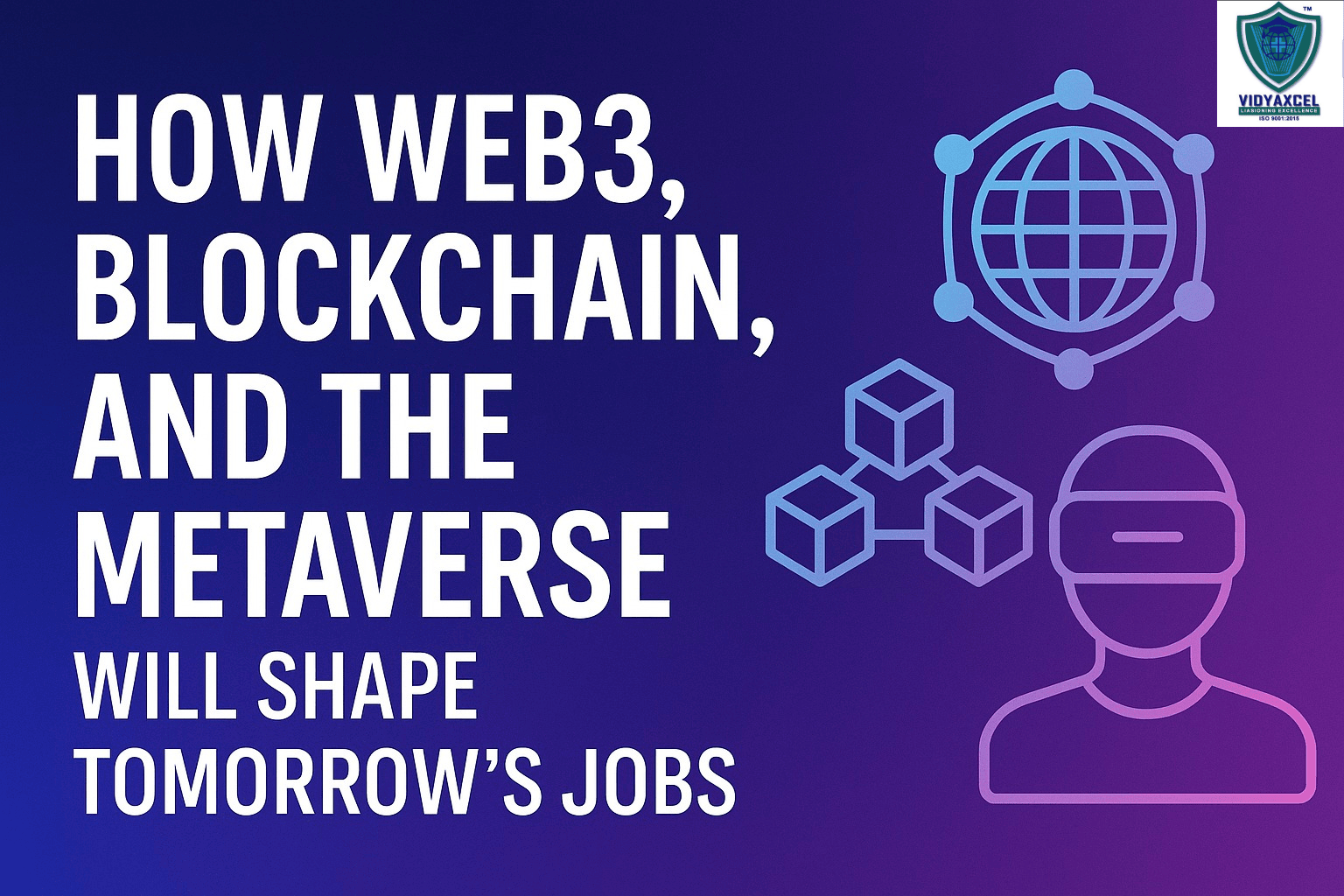Blog Details
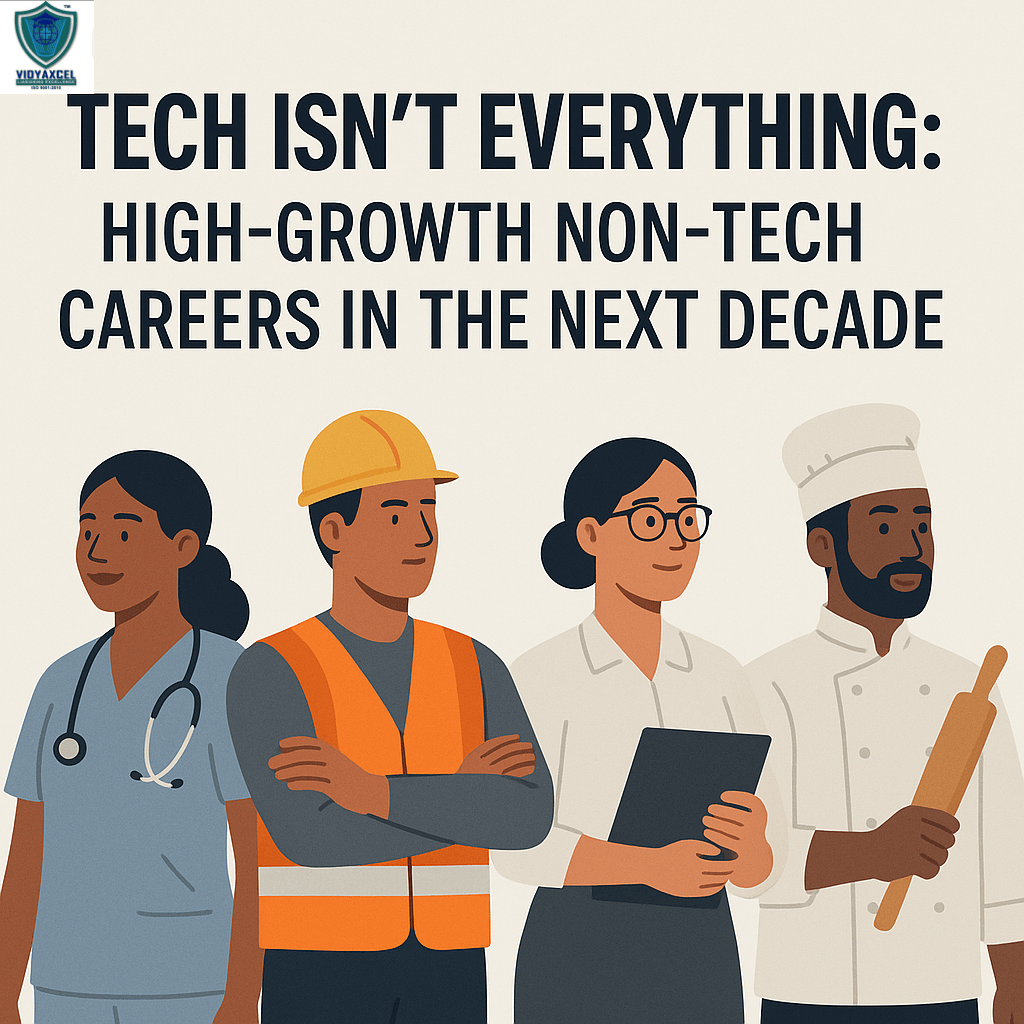
02Aug
Tech Isn’t Everything: High-Growth Non-Tech Careers in the Next Decade
In a world dominated by headlines about AI, blockchain, and automation, it’s easy to assume that the future belongs only to coders and software engineers. But the reality is far more nuanced. Not every high-growth career of tomorrow requires a tech degree or programming skills. While technology is undoubtedly reshaping industries, it is also creating new non-tech roles or amplifying the importance of human-centric skills that cannot be replaced by machines.
This blog explores the non-tech career paths that are projected to thrive in the next decade. Whether you're a student exploring your options, a parent guiding your teen, or a professional considering a shift—this guide offers clarity on what lies beyond the tech bubble.
1. The Myth of “Tech or Nothing”
Many assume that the only secure careers are in coding, data science, or AI. While these fields are expanding, the World Economic Forum’s Future of Jobs Report reveals that creative, analytical, managerial, and caregiving roles are equally essential in a digital future.
Automation may reduce demand in repetitive roles, but it also boosts the value of inherently human skills—like communication, empathy, creativity, and critical thinking. The future workforce will need tech-aware, not tech-obsessed individuals.
2. Why Non-Tech Roles Will Thrive in a Tech World
🔹 a. Human Skills Can’t Be Automated
AI can analyze emotions but not genuinely feel them. Roles requiring empathy, creativity, negotiation, and storytelling are irreplaceable.
🔹 b. Digital Overload Creates Demand for Human Touch
As people become more digitally fatigued, wellness, mental health, counseling, and artistic careers are rising in demand.
🔹 c. Technology Needs Human Context
Even tech products need marketers, product managers, legal advisors, and designers who understand people, cultures, and markets.
3. Top High-Growth Non-Tech Careers in the Next Decade
🩺 1. Healthcare and Allied Services
a. Mental Health Professionals (Psychologists, Therapists, Counselors)
-
Why it’s growing: Rising stress, digital burnout, loneliness, and work-life imbalance.
-
Skills: Emotional intelligence, active listening, psychological theory.
-
Required Education: MA Psychology, Diploma in Counseling, Clinical Certification.
b. Geriatric Care & Palliative Workers
-
Why: Aging global population.
-
Opportunities: Hospitals, NGOs, homecare providers.
💼 2. Business & Management Careers
a. Sustainability & ESG Managers
-
Role: Help companies reduce carbon footprint, comply with regulations.
-
Skills: Corporate social responsibility, analytics, stakeholder management.
-
Industries: FMCG, manufacturing, fashion, energy.
b. Business Development & Strategy Analysts
-
Why: As markets grow, companies need people who can think beyond numbers.
-
Traits: Market understanding, critical thinking, networking.
🎨 3. Creative and Cultural Professions
a. Content Creators, Podcasters, and Writers
-
Platforms: YouTube, Substack, Spotify.
-
Monetization: Ads, sponsorships, subscriptions.
-
Support Roles: Editors, researchers, scriptwriters, community managers.
b. Digital Illustrators, Animators & Storyboard Artists
-
Why: Demand from media, advertising, e-learning, and gaming.
-
Tools: Adobe Suite, Procreate (no coding needed).
🧠 4. Education and Coaching
a. Career Coaches & Skill Trainers
-
Demand: Rising need for career guidance, especially in Tier 2/3 cities.
-
Niches: Soft skill trainers, interview prep, student counselling.
b. Subject Matter Experts & Curriculum Designers
-
Needed in: EdTech, test prep apps, skill-building platforms.
🌱 5. Sustainability & Environmental Careers
a. Urban Farming Consultants & Agripreneurs
-
Role: Build food systems for smart cities.
-
Skills: Organic farming, permaculture, logistics.
b. Environmental Policy Analysts
-
Workplaces: Think tanks, NGOs, international development agencies.
🎭 6. Media, Communication & PR
a. Public Relations & Corporate Communication Specialists
-
Why: Brand image and trust are more crucial than ever.
-
Tasks: Crisis handling, internal comms, reputation management.
b. UX Writers & Brand Storytellers
-
Importance: Even AI needs human words for connection.
-
No coding required, just language mastery and empathy.
💼 7. Legal, Policy, and Ethics Professions
a. Legal Advisors & Compliance Officers (Non-tech industries)
-
Fields: Media, pharma, environment, labor laws.
b. Ethics Consultants
-
Why: In an AI world, ethical concerns are key—bias, data misuse, inclusion.
👨🏫 8. Social Impact & Development Sector
a. Program Managers at NGOs or CSR Projects
-
Traits: Ground-level empathy, organizational leadership, budgeting.
b. Gender & Inclusion Officers
-
Purpose: Build inclusive workplaces and social programs.
4. Skills That Will Define Non-Tech Success
Just because a role is "non-tech" doesn’t mean it's free from upskilling. Here's what matters:
🌟 a. Power Skills (aka Soft Skills)
-
Emotional intelligence
-
Persuasion and negotiation
-
Conflict resolution
-
Adaptability and lifelong learning
🌎 b. Global & Cross-Cultural Fluency
-
Working across geographies
-
Multilingual communication
-
Cultural sensitivity in campaigns
📈 c. Analytical and Design Thinking
-
Problem framing
-
Human-centric innovation
-
Systemic thinking
🧩 d. Interdisciplinary Knowledge
-
A content creator who understands business trends
-
A lawyer who understands blockchain law
-
A designer who collaborates with engineers
5. How Students Can Prepare for These Careers
👨🏫 a. Choose the Right Stream with Flexibility
Liberal arts, psychology, management, or commerce can all lead to high-growth non-tech careers.
📚 b. Pursue Certifications, Not Just Degrees
-
Examples: Mental Health First Aid, Copywriting Bootcamps, CSR Certifications, Sustainability Literacy.
💼 c. Intern Early in Real-World Settings
-
NGOs, media houses, schools, research labs, small businesses.
🧠 d. Practice Reflective and Ethical Thinking
-
Stay aware of societal challenges.
-
Build your own "why" behind a chosen career.
6. For Parents: Supporting a Non-Tech Career Journey
-
Don’t dismiss liberal arts or humanities—they build the future’s core human skills.
-
Encourage exploration and experimentation through workshops, volunteering, travel.
-
Understand that passion and purpose can also be financially sustainable.
-
Talk to career counsellors or mentors who understand 21st-century options.
7. Real Success Stories: High Achievers in Non-Tech Fields
👩🍳 Garima Arora – Chef & Restaurateur
India’s first female Michelin-starred chef, combining art, business, and culture.
🧘♂️ Anand Mehrotra – Yoga Teacher and Wellness Entrepreneur
Global reach with ancient wisdom.
🎭 Bhuvan Bam – Comedian, Musician, and YouTuber
A non-tech content creator with millions of followers and brand collaborations.
🌿 Payal Rajpal – Founder of Robotex India
An educator and social impact leader blending education with equity (non-tech foundation).
Conclusion
The next decade is not about choosing tech versus non-tech. It’s about leveraging your strengths in a tech-augmented world. While machines get smarter, the world still needs storytellers, leaders, healers, creators, and connectors. These roles are harder to automate—and are critical to building an equitable, ethical, and sustainable future.
Don’t just ask: “Which skill is trending?”
Ask: “Where can I make an impact in the world that machines cannot?”
FAQs
1. Can non-tech careers be as high-paying as tech jobs?
Yes. Roles in marketing, finance, UX writing, wellness, and creative industries can pay exceptionally well—especially if you bring in-demand skills and creativity. Monetization through freelancing and personal branding is growing too.
2. Do non-tech jobs require less education or training?
Not necessarily. Many non-tech careers require deep specialization (e.g., psychology, law, public policy). However, they may allow more creative freedom and interdisciplinary exploration.
3. Will AI replace non-tech roles like writing or teaching?
AI may augment, not replace, these roles. It can assist with basic tasks but can’t replicate empathy, intuition, or human judgment, which are central to many non-tech careers.
4. What are the best platforms for students to explore non-tech career options?
-
Internshala, UN Volunteers, Upwork (freelance exposure)
-
Coursera, FutureLearn (skill-building)
-
LinkedIn (mentoring, networking)
-
YourStory, TED Talks (inspiration from non-tech innovators)
5. How can I convince my parents about choosing a non-tech career?
Share successful role models, show job market data, and involve them in career counselling. Highlight how your strengths align with future trends. A guided plan with clear milestones helps reassure them.
Our Office: West Bengal, Maharashtra & Delhi.
For More Infomation about admission in Medical, Engineering, Management & Study in Overseas Details.
View Current Study Overseas, Medical, Engineering & Management Admission Details Video.
